Politics
The APC Lacks Credibility To Discuss Debt Management In Delta State
Published
5 months agoon
By
Ekwutos Blog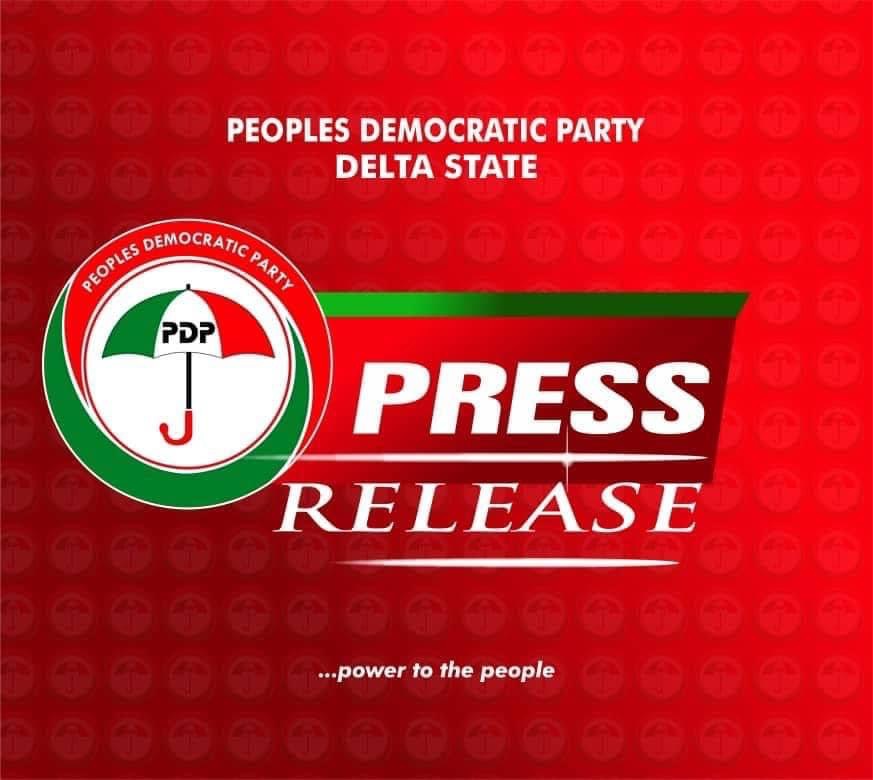
The recent misguided propaganda by the Delta State Chapter of the All Progressives Congress (APC) to misinform the public on the debt management measures being undertaken by the administration of His Excellency, Governor Sheriff Oborevwori, was, at best, a shameless act of its characteristic duplicitousness.
In the release signed by its Publicity Secretary, Valentine Onojeguo, the APC merely tried to disinform the public by attempting to play down the significance of Governor Oborevwori’s act of responsibility in reducing the debt profile of the State to ensure greater financial stability and sounder economic health.
It is indeed strange that the APC in Delta State would pretend not to know the origin and the truth about the debt profile of the nation and the States. Let us remind them that through the mismanagement of the national economy by the APC-led Federal Government, from 2015 when it took over the reins of government with President Muhammadu Buhari, it has presided over heavy and reckless borrowing, escalating the national debt stock from about N7 trillion after the 16 years of the PDP governance, to over N90 trillion under its eight years, leading to a situation in which 97% of Nigeria’s national revenue was devoted to debt servicing and the attendant reduced revenue allocations to States and Local Governments.
While it failed woefully in managing the crude oil production capacity of the nation which it brought from over two million barrels per day to a low of about one million BPD, a huge chunk of the revenue receipts from even the low output had been devoted to their corruptive importation of petroleum products and payment of fuel subsidy, by which little or nothing was being returned to the federation account.
The situation was further worsened by its poor fiscal and monetary policies which steadily and increasingly devalued the Naira and posed inflationary difficulties across all sectors and segments of the nation.
The former Minister of Finance under Buhari, Zainab Ahmed, openly admitted in 2021 that, revenues were low and so were federal allocations to the States and Local Governments.
“The crash of the crude oil prices really hit us very hard in terms of revenue. We have very low revenues, we have very high expenditures. What we have done so far is just to provide some stability to make sure salaries are paid, pensions are received every month; that we send funds to the judiciary and the legislature; that we meet our debt service obligations. That’s what we are doing. It also means we have had to borrow more than we have planned.
“It is a very difficult time. I cannot explain to you how difficult it is, not just for the Federal Government but also for the States. We see increasing reductions in our FAAC revenues. So, FAAC reduces and whenever FAAC reduces, it is a very difficult situation.”
Those were the words of the former Minister of Finance of the APC government on the national economy.
Not only did the federal government try to sustain the economy purely on loans and more loans which were not applied to productive sectors nor effectively and equitably to infrastructural development, it also resorted to printing money which is the worst style of economic management.
During a Senate Committee hearing in March 2024, the current Minister of Finance and Coordinating Minister of the Economy, Wale Edun, gave a sordid picture of how the APC mismanaged the national economy, from 2015 to 2023.
“It came from eight years of just printing money not matched by productivity. It’s not like when you earn dollars, and you free the naira alongside it. We are going to audit even the N22.7 trillion printed aimlessly. The consequence of the eight years of printing money without productivity is high inflation confronting the country now,” he said.
Given this background of APC management of the economy from 2015 to 2023, as we have seen attested to by its Ministers of Finance, it can only be shameless pretence, though in line with its usual deceitfulness, for the APC to question why component States of the federation had to source market funds, including loans and bonds, to be able to function effectively in the service of their people.
According to the National Bureau of Statistics, Lagos, an APC State, led in the borrowing with close to N1 trillion.
“Lagos State recorded the highest domestic debt in Q2 2023 with N996.44 billion (and) recorded the highest external debt with US$ 1.26 billion, followed by Kaduna with US$569.38 million.”
Delta State, like all other States could not have been an exception in seeking ways and means to serve its people. With a total exposure of about N450 billion accumulated through the years into the first quarter of 2023, as forced mostly by consequence of APC mismanagement of the national economy, Delta State holds neither the highest domestic nor external debt, and the immediate past administration of His Excellency, Senator Dr. Ifeanyi Okowa, clearly outlined the infrastructure projects on which borrowed funds were applied, as are visible across the State.
However, in the current dispensation, even when the APC federal government and some other States have continued to borrow, Governor Sheriff Oborevwori has decided not only to hem borrowing but also to pay up and reduce inherited loans and interests in order to safeguard the State from the kind of debt service burden that has crippled the nation under the leadership of the APC.
Such commitment is not only noble, but can only be executed through a deep sense of leadership responsibility and financial prudence as Oborevwori is demonstrating.
In his 2024 budget appropriation, he was emphatic about keeping the State expenditure within revenue limits, reducing its debt profile and ensuring that the administration does not build new inflationary pressure through extra budgetary funding. In simple terms, his government is averse to borrowing, profligacy and expenditures that are not planned nor budgeted for.
It was for this reason that he cut down on various items relating to executive cost of running government while he increased the budget volume for projects and programmes directly related to providing for the people, communities and workers.
This was demonstrated in the reduction of Overhead Cost by N9.7 billion or 8.35%, from N116.2 billion in 2023 to N106.5 billion in 2024; the reduction of the vote for Grants and Contributions by N4.7 billion or 32%, from N14.7 billion in 2023 to N10 billion in 2024; the reduction of the capital vote for the Administration sector by N20.9 billion or 48%, from N43.6 billion in 2023 to N22.7 billion in 2024; and the drastic reduction of Contingency provision by N8.2 billion or 61.7%, from N13.3 billion in 2023 to just N5.1 billion in 2024.
While the budget made a provision of N50 billion for possible receipts from loans, it is on record that the administration has not borrowed a dime in its almost fifteen months, notwithstanding the financial requirements for the execution of high level infrastructure projects, workers and social welfare investments, and human capital development programmes being churned out across the State.
Rather, Oborevwori has saved over N205 billion through financial efficiency and gone on to reduce the State debt profile by N180 billion.
It is these achievements in the financial management of the State that the APC is quarreling with.
But see why we will not bother about their charade: They want the State to be run the way APC has misrun the national economy since 2015, in which through their reckless borrowings they led Nigeria into servicing its debts hanging with over 97% of its national revenue, and borrowing evermore in the attempt to sustain the economy on borrowed life wire, while actually crashing it. God forbid that to happen in Delta.
On the contrary, Oborevwori is determined to manage Delta into a debt-free State.
Thankfully, from the relative increase in oil production output, especially in Delta as occasioned by Oborevwori’s efficient management of relations with oil producing communities, there is increased allocation to the State and he is focused on managing the State economy within its means, including intensified IGR, to administer the State in such manner that debts would not be left for coming generations and administrations to inherit as the APC does and would want to see in Delta State.
Signed:
Engr. Dan Ossai, MNSE, CEng.
State Secretary,
PDP, Delta State
12th August, 2024
You may like


Tonto Dikeh Sets the Record Straight on Dating Rumors After Viral Photo


Cobhams Asuquo Reveals Pioneering Move to Charge Clients in Dollars at 25
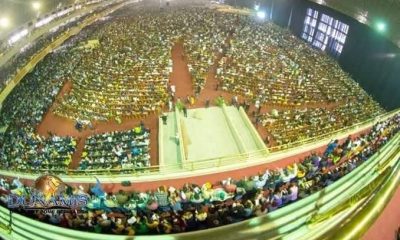

BREAKING: Court Remands Dunamis Church Senior Pastor, Paul Enenche’s Two Brothers, Pastor Abraham Daniel In Prison After Honouring Police Invitation


Beloved Hollywood Actress Dalyce Curry Dies in Los Angeles Wildfire Tragedy


Tinubu distributes palliatives to SUG presidents nationwide


Dakar 2025, Stage 9: Al-Attiyah fastest as Al-Rajhi grabs overall lead
Politics
Tinubu distributes palliatives to SUG presidents nationwide
Published
15 hours agoon
January 14, 2025By
Ekwutos Blog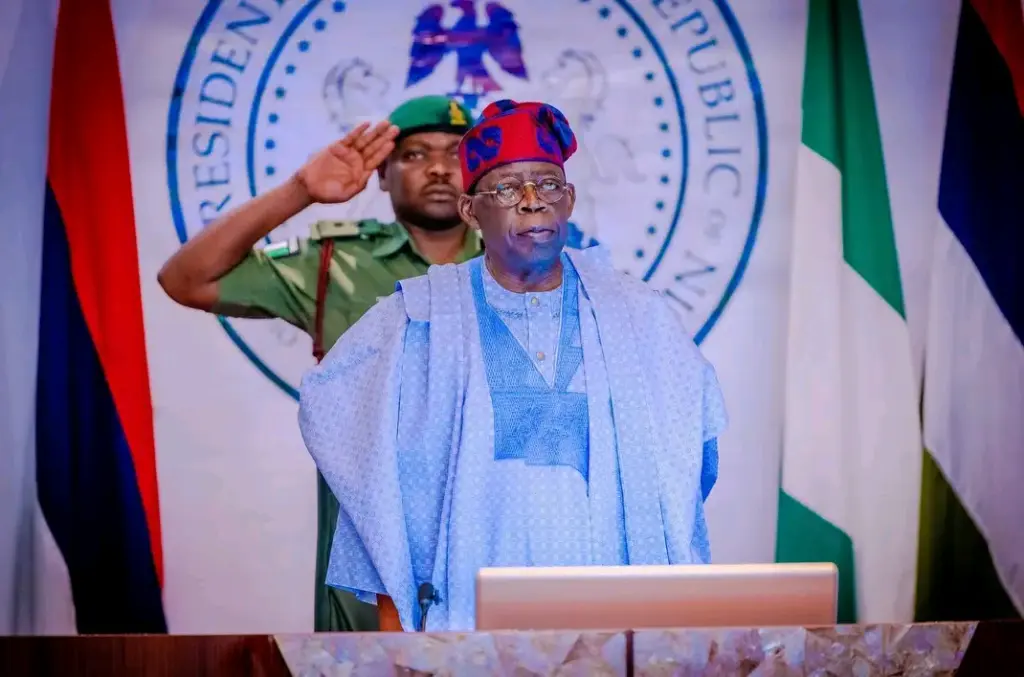
President Bola Tinubu has extended palliative support to Student Union Government (SUG) Presidents across Nigeria’s 36 states and the Federal Capital Territory.
The distribution of rice, facilitated by the Special Adviser on Students Engagement, Asefon Sunday, took place in Abuja.
During the event, Asefon explained that the initiative was part of the President’s ongoing efforts to support students and their communities. He recalled a similar gesture in December 2024, when student leaders received palliative support during the Christmas and New Year celebrations.
“Today, SUG Presidents across the Federation will receive rice from President Bola Ahmed Tinubu, a leader who values students not just as tomorrow’s leaders but as leaders of today,” Asefon said.
He noted that the rice, initially meant for distribution in December 2024, arrived late in Abuja on December 28. To ensure proper distribution, representatives were invited to Abuja to personally receive the items. Two SUG Presidents were selected from each zone to oversee and manage the distribution process.
“This is unprecedented. For the first time in this country, a sitting President is directly reaching out to student leaders during the festive season,” Asefon remarked.
Looking ahead, Asefon assured students of more benefits under the Presidential initiative in 2024. “This is a time for Nigerian youth and students to reflect, express their views, and engage actively with the government. The impact of this administration is now being felt by students nationwide,” he added.
Fahad Abdullahi, the SUG President of Abubakar Tafawa Balewa University, Bauchi, expressed gratitude on behalf of the student leaders. “We were informed that all SUG Presidents across the nation would receive rice, a kind gesture from the President. We sincerely appreciate this initiative and commend him for his focus on students, from the Nigerian Education Loan Fund to this Rice Initiative,” Abdullahi said.
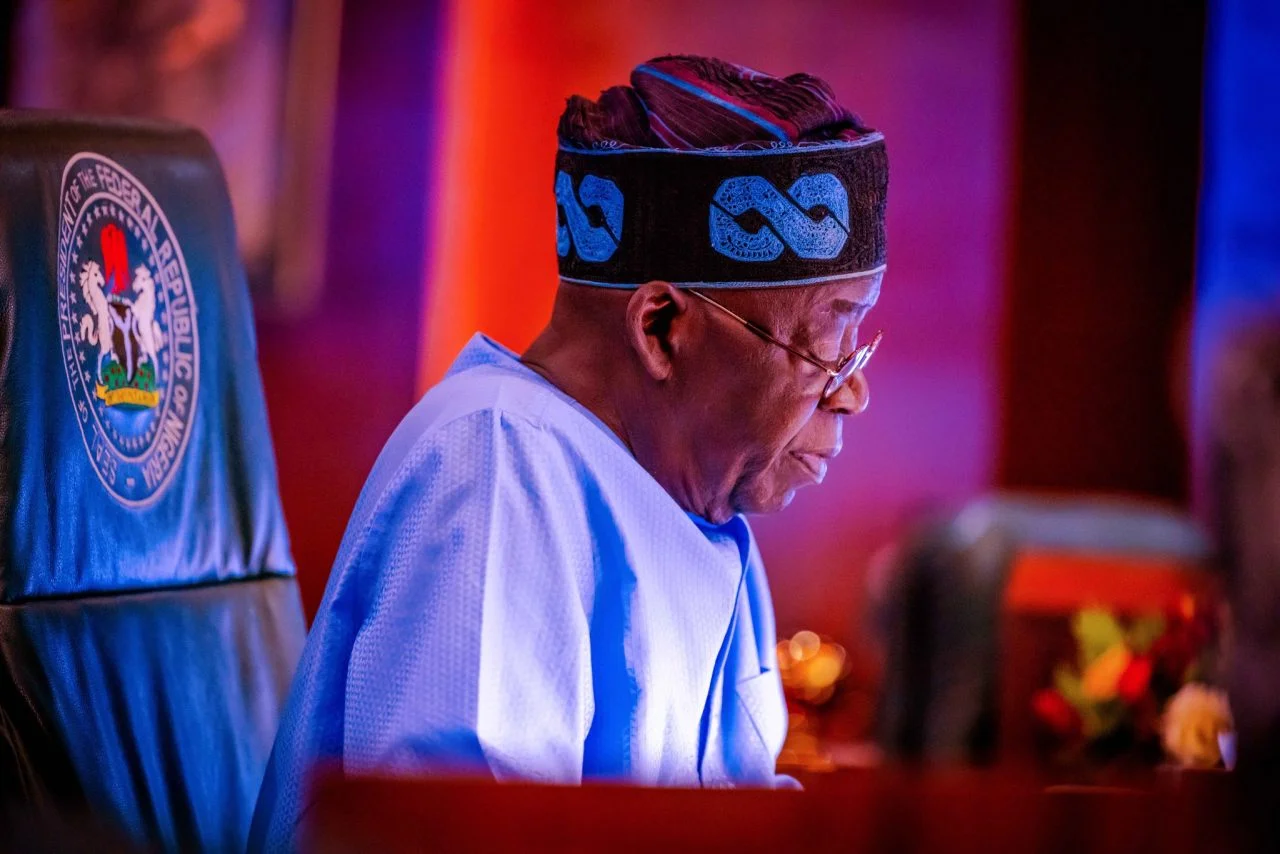
President Bola Ahmed Tinibu has approved the appointment of Folashade Arinola Adekaiyaoja fsi+, fdc, as Deputy Director General for the Service.
The approval, the first by any president, has drawn commendation from a large section of serving and retired DSS officers who see the move as aimed at restoring professionalism to the Service.
The presidential approval, it was gathered, seeks to revise the agency’s structure for better efficiency, in line with the original onanogram of the service.
Checks revealed that the DSS is structured to comprise three Deputy Directors General in its hierarchy.
The appointment and ratification by the President, according to elated operatives of the agency, was based on the recommendation of the DG through the National Security Adviser (NSA), Mallam Nuhu Ribadu.
One of the sources told Vanguard that the appointment is in line with its extant regulations and unprecedented in the history of the Secret service.
The appointment of Adekaiyaoja, a native of Kogi State, it was gathered, is being celebrated by a cross section of officers and operatives who see her as eminently qualified for the position.
It was further gathered that President Tinubu had, in line with his promise to improve on the security of life and property of Nigerians, tasked the heads of security agencies to come up with proposals on how to improve on their service delivery.
“It was on this note,” offered a security source, “that the President approved the DG’s recommendation, which many serving and retired officers are confident would boost career progression in the Service.”
Politics
Wike signs 5,481 C-of-O in one year, FCT land allottees now get title documents in two weeks
Published
17 hours agoon
January 14, 2025By
Ekwutos Blog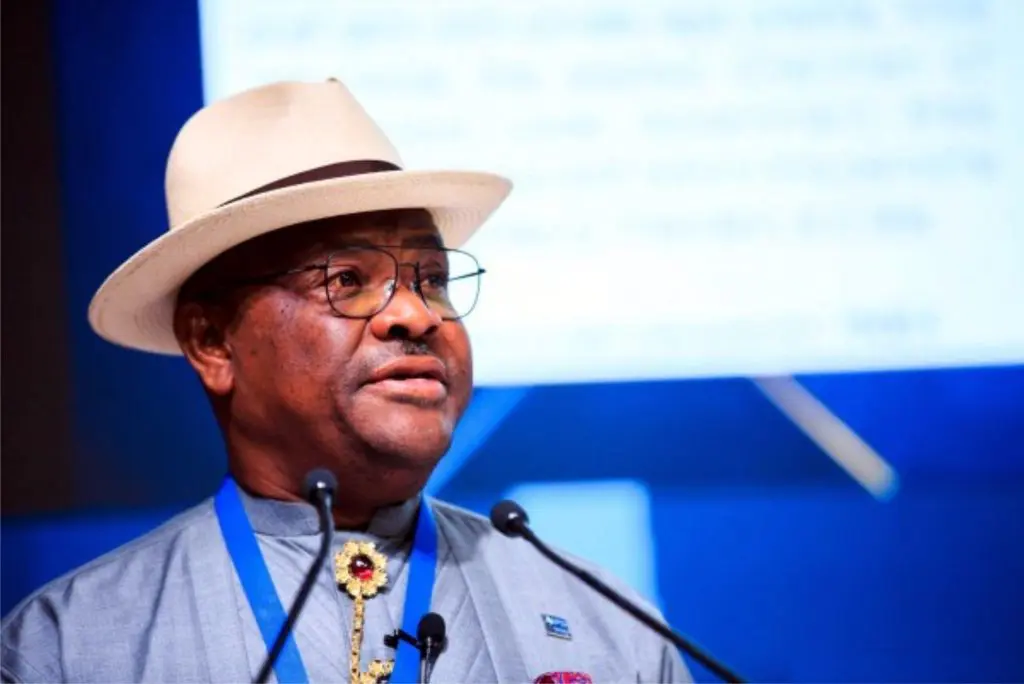
As at December 31, 2024, the Minister of the Federal Capital Territory (FCT), Nyesom Wike, has signed a total of 5,481 Certificates of Occupancy (C-of-O), the Minister’s Senior Special Assistant on Public Communications and New Media, Lere Olayinka, has said.
This is 2,919 less than the total number of C-of-O printed and signed by the Federal Capital Territory Administration (FCTA) from 2010 to 2023 (13 years).
In a statement on Tuesday, Olayinka said; “the moment necessary payments are made, land allottees can now get their C-of-O within two weeks.”
He said “one of the reasons land allottees do not find it compelling to pay for their C-of-O is because when they pay, they wait for years. But in line with the Renewed Hope Agenda of President Bola Ahmed Tinubu’s government, that has changed now.
“Even uploading of necessary information to show when a C-of-O is collected as well as details on the collector that used to take months, is now done within 72 hours.”
Giving details of C-of-O produced and signed in the FCT in the last 15 years, the Minister’s Spokesperson said; “From May 2010 to May 2015, total of 5,655 Certificates of Occupancy were produced and signed.
“From May 2015 to May 2019, a total of 1,174 Certificates of Occupancy were produced and signed, while 1,571 were done between May 2019 and May 2023.
“Meanwhile, from May 2023 that President Tinubu assumed office till December 31, 2024, a total of 5,481 Certificates of Occupancy were produced and signed by the FCT Minister.
“Also, in the next few weeks, land allottees whose C-of-O are ready for collection will begin to receive auto-generated SMS because it has been discovered that most of them don’t even know that their title documents are ready.”

Tonto Dikeh Sets the Record Straight on Dating Rumors After Viral Photo

Cobhams Asuquo Reveals Pioneering Move to Charge Clients in Dollars at 25

BREAKING: Court Remands Dunamis Church Senior Pastor, Paul Enenche’s Two Brothers, Pastor Abraham Daniel In Prison After Honouring Police Invitation
Trending
- Politics11 months ago
Nigerian Senate passes Bill seeking the establishment of the South East Development Commission.

 Business11 months ago
Business11 months agoInflation hits record high of 29.90% on naira weakness

 Politics8 months ago
Politics8 months agoBREAKING: Federal Gov’t Offers To Pay Above N60,000, Reaches Agreement With Labour

 SportsNews10 months ago
SportsNews10 months agoOlympic Qualifiers 2024: CAF Confirms Dates For Super Falcons Vs Banyana Banyana

 Politics10 months ago
Politics10 months agoGovernor Hope Uzodinma’s New Cabinet In Imo: The Gainers, The Losers

 Trending3 months ago
Trending3 months agoNYA demands release of ‘abducted’ Imo chairman, preaches good governance
- Business3 months ago
US court acquits Air Peace boss, slams Mayfield $4000 fine
- Entertainment11 months ago
American Singer Beyonce makes history as first Black woman to top country chart

